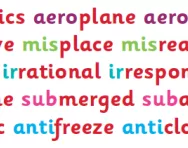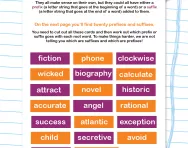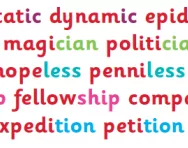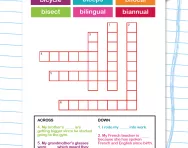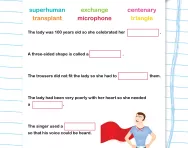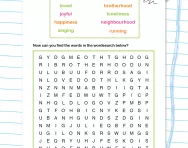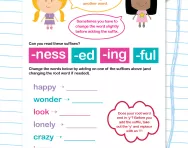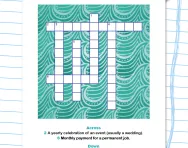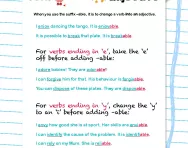Important update from TheSchoolRun
For the past 13 years, TheSchoolRun has been run by a small team of mums working from home, dedicated to providing quality educational resources to primary school parents. Unfortunately, rising supplier costs and falling revenue have made it impossible for us to continue operating, and we’ve had to make the difficult decision to close. The good news: We’ve arranged for another educational provider to take over many of our resources. These will be hosted on a new portal, where the content will be updated and expanded to support your child’s learning.
What this means for subscribers:
- Your subscription is still active, and for now, you can keep using the website as normal — just log in with your usual details to access all our articles and resources*.
- In a few months, all resources will move to the new portal. You’ll continue to have access there until your subscription ends. We’ll send you full details nearer the time.
- As a thank you for your support, we’ll also be sending you 16 primary school eBooks (worth £108.84) to download and keep.
A few changes to be aware of:
- The Learning Journey weekly email has ended, but your child’s plan will still be updated on your dashboard each Monday. Just log in to see the recommended worksheets.
- The 11+ weekly emails have now ended. We sent you all the remaining emails in the series at the end of March — please check your inbox (and spam folder) if you haven’t seen them. You can also follow the full programme here: 11+ Learning Journey.
If you have any questions, please contact us at [email protected]. Thank you for being part of our journey it’s been a privilege to support your family’s learning.
*If you need to reset your password, it will still work as usual. Please check your spam folder if the reset email doesn’t appear in your inbox.
What is a root word?
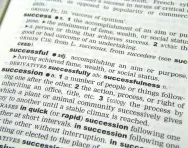
What is a root word?
A root word is a basic word with no prefix or suffix added to it (a prefix is a string of letters that go at the start of a word; a suffix is a string of letters that go at the end of a word). By adding prefixes and suffixes to a root word we can change its meaning.
The suffixes -er and -est are also used to form the comparative and superlative of adjectives (for example, light / lighter / lightest).
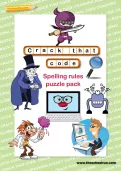
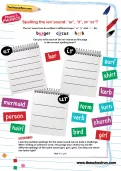
Get Top Marks In Spelling Tests!
- FREE spelling workbook
- Step-by-step programme
- Spelling test pack
- 100s of worksheets & games
For example:
The root word astro could have the suffix -nomy added to it to make the word astronomy.
'Astro' means 'stars' and 'nomy' means the study of something. Astronomy is the study and knowledge of stars.
The root word lingual could have the prefix bi- added to it to make the word bilingual.
'Bi' means two and 'lingual' means pertaining to language. Someone who is bilingual is fluent in two languages.
Some root words can have both prefixes and suffixes attached to them to turn them into words with different meanings:
| Root word | With a prefix added | With a suffix added |
| normal | abnormal | normality, normalise |
| might | almighty | mightily |
| education | co-education | educational, educationally |
| legal | illegal | legalise, legality |
| mature | immature | maturity |
| behave | misbehave | behaviour, behaved |
| fiction | non-fiction | fictional, fictionally |
| dress | undress | dressed |
| happy | unhappy | happier, happily |
Children learn a range of words with suffixes and prefixes throughout their time at primary school, usually starting in Year 2 and Year 3.
Often, children will be given a list of spellings to learn at home that all have the same suffix, or all have the same prefix.
It is a good idea for them to be aware of root words, as learning one root word (for example: education), will then help them to spell other words containing that word such as co-education and educational.
Learning root words, suffixes and prefixes also helps children to understand words better, as they begin to see links between different words and identify word families.


